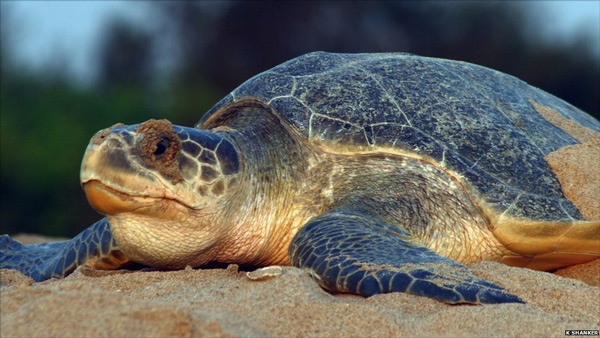New Delhi: Odisha is actively participating in a nationwide initiative to enhance marine turtle conservation, with the state having already amended its Marine Fisheries Regulation Act (MFRA) to mandate the use of Turtle Excluder Devices (TEDs) in trawl fishing nets. This move aligns with a broader directive from the Department of Fisheries, Government of India, urging all coastal states and Union Territories to review their MFRAs for more robust turtle conservation measures.
Union Minister of State for Fisheries, Animal Husbandry and Dairying, Shri George Kurian, informed the Rajya Sabha today that all nine coastal states, including Odisha, have taken steps to make TED use compulsory. The Union Territory Administrations of Andaman & Nicobar Islands and Lakshadweep, notably, do not permit bottom trawl fishing.
The integration of TEDs into fishing practices is a crucial step towards reducing the by-catch mortality of endangered marine turtles. The ICAR-Central Institute of Fisheries Technology (CIFT) has developed a TED model in line with US -National Oceanic and Atmospheric Administration (NOAA) specifications, and four agencies have been empanelled for their fabrication at a cost of ₹23,485 per unit.
To facilitate this transition, the implementation of TEDs has been included as a component in the Pradhan Mantri Matsya Sampada Yojana (PMMSY) scheme, offering 100% financial assistance (60% Central + 40% State) for their installation. Guidelines have been circulated to all coastal states and UTs, including Odisha, to encourage widespread adoption.
Field demonstrations and awareness programs are also being conducted by MPEDA-NETFISH and State Fisheries Departments to address any implementation challenges faced by fishermen. The Department of Fisheries, Government of Andhra Pradesh, has already distributed 85 TEDs to 60 trawlers in their state.
The benefits of TED use are multi-faceted, extending beyond mere compliance. They promote the conservation of endangered marine species, allow sea turtles to escape from nets, and enhance trawl net opening for improved catch efficiency. Furthermore, TEDs reduce the entrapment of trash, improve cod-end cleanliness, and can even enhance the quality and market value of shrimp and fish catches. Importantly, compliance with U.S. regulations through TED use may support the certification of the shrimp fishery and potentially facilitate the lifting of the ban on Indian wild-caught shrimp exports to the United States.
While specific figures for TED distribution or proposals in Odisha were not provided in the minister’s statement, the state’s amendment to its MFRA underscores its commitment to this vital conservation effort. The Department of Fisheries, Government of Kerala, for instance, has submitted a proposal to support the installation of TEDs in 2,599 trawlers, amounting to ₹649.75 lakh, demonstrating the scale of implementation being considered by states.
As Odisha moves forward with the mandatory use of TEDs, it contributes significantly to national efforts aimed at minimizing turtle by-catch, fostering sustainable fishing practices, and improving the overall health of the marine ecosystem.


